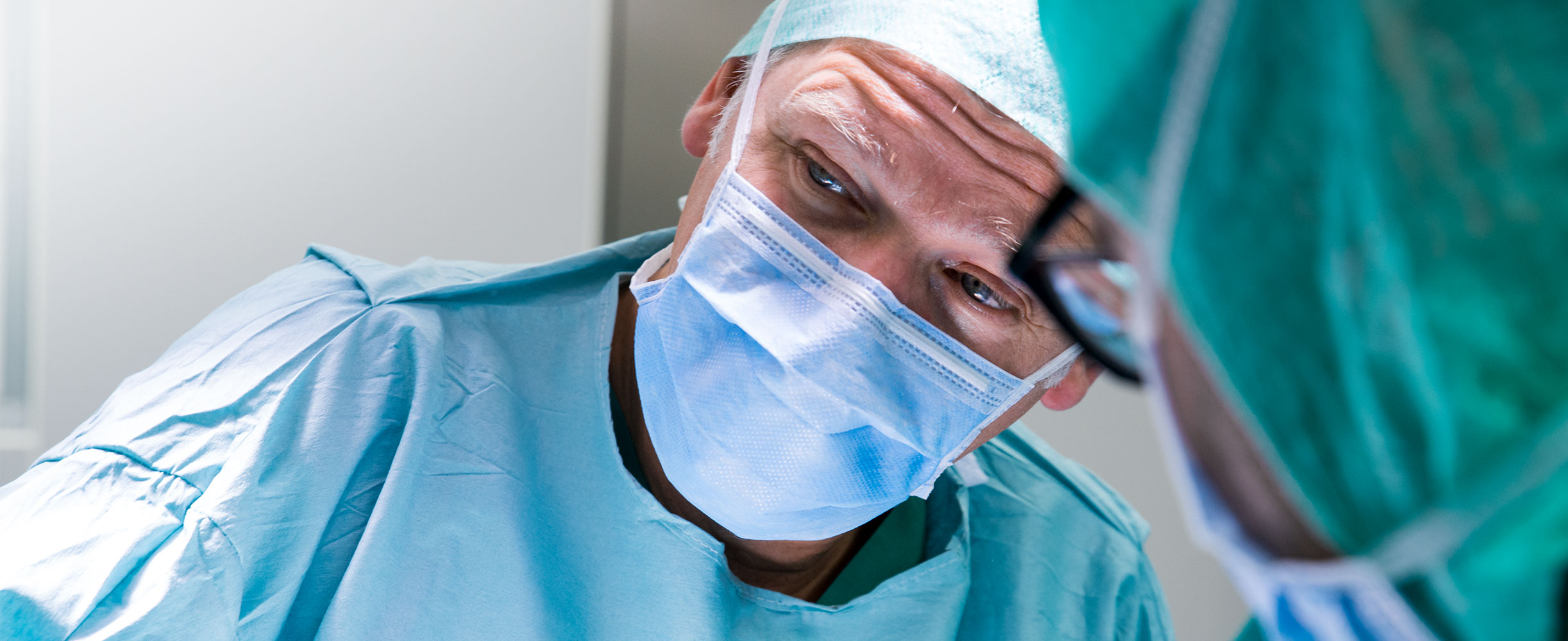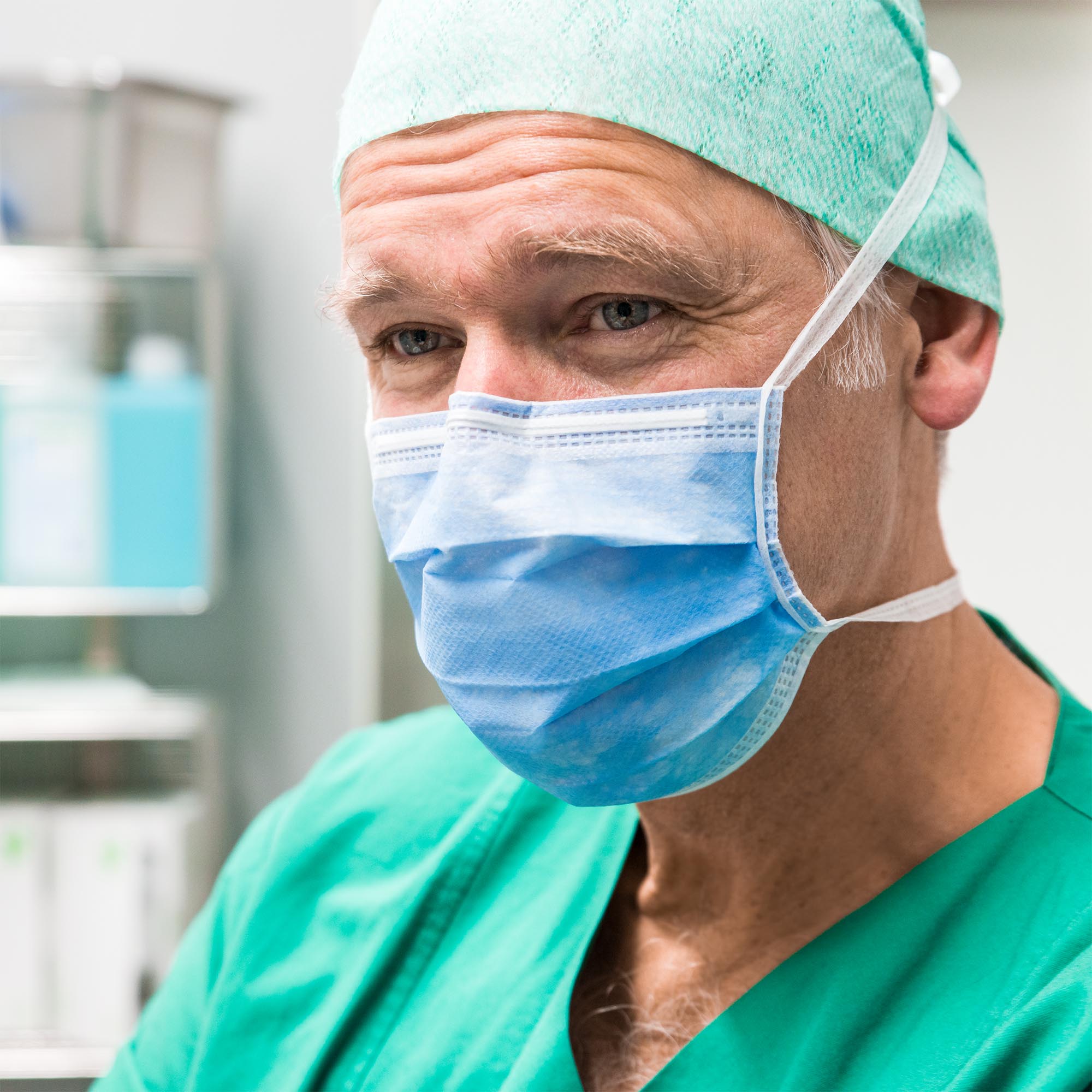-
Bewertung wird geladen...

Hernia surgery in children
The treatment of inguinal hernias is not just the most common surgical procedure in adults. It is also the most common condition requiring surgical treatment in childhood. Inguinal hernias in children are almost always congenital, occurring at a frequency of up to 2%. Depending on the birth weight, the incidence of inguinal hernias can be significantly higher.
Around 30% of premature babies with a birth weight of less than 1 kg, for example, have an inguinal hernia.
This is caused by an incompletely closed vaginal process, which can fill with hernia contents from the abdominal cavity. The processus vaginalis peritonei is a funnel-shaped outpouching of the peritoneum in the inguinal canal. The hernia contents can involve the intestines or the greater omentum.
It is only when the vaginal process becomes full that a visible swelling occurs in the groin and/or testes.
This can occur directly after birth or anything up to several years later. If the contents of the vaginal process include abdominal intestine (bowel, omentum, ovaries, tubes), this is referred to as a hernia.
If the vaginal process contains only fluid, this is referred to as a hydrocele. A hydrocele can be combined with an inguinal hernia.
Just like in adults, most cases occur in boys, with a ratio of 5:1. Around 60% of all paediatric inguinal hernias occur on the right-hand side, 20-25% on the left and 10-15% on both sides.

Diagnosing a paediatric inguinal hernia
Paediatric inguinal hernias are characterised by a swelling in the groin region. In boys, this can also extend down to the testicular sac (scrotum). This may be present constantly or intermittently, and is usually noticed by parents. In newborns especially, an inguinal hernia can cause discomfort, causing agitation and a tendency to cry. To differentiate between an inguinal hernia and a hydrocele, a diaphanoscopy is carried out. A small torch is used to illuminate the scrotum. This allows the contents of the hernia to be determined. Unlike most inguinal hernias, hydroceles can rarely be drained with compression. It is only if they incarcerate that repositioning is made more difficult or impossible, like with inguinal hernias. This is not too uncommon, since small children are not always able to explain their symptoms clearly. Incarcerations requiring emergency intervention therefore account for up to 12% of all paediatric inguinal hernias, especially at the newborn stage.

Surgical techniques for paediatric inguinal hernias - groin operation
Paediatric inguinal hernias are always congenital, indirect hernias involving the internal inguinal ring. There is no weakness of the posterior wall of the inguinal canal, fascia or muscles. Unlike the surgical techniques used in adult hernia patients, a high hernial sac removal is sufficient.
We carry out this procedure under open surgery via small incisions in the skin made in the lower abdominal fold. With the Rehbein-Grob technique, the internal muscles are also adapted to the inguinal ligament following high hernial sac removal.
In girls, following high hernial sac removal, the round ligament is shortened and reattached to the muscles (Bastianelli technique).
The procedure is typically carried out under general anaesthetic. Depending on the patient and their physical findings, as well as the nature of the outpatient preparation, this may be carried out as a daycase procedure, i.e. the child is monitored for a few hours after the operation and can then be discharged home. There is however the option of inpatient monitoring in Starnberg Hospital's Paediatric Department.

-
Indication for surgery
The high number of incarcerations also explains why, when a diagnosis is made, the indication is also established for surgery. It is only in rarer cases that a watch-and-wait policy is justified, especially in premature babies with a low birth weight or who have other serious conditions.
-
Post-operative period
Children are hard to keep still, so no rest is needed after surgery. The skin is closed using dissolvable suture material, which means that no stitches need to be removed. Regular wound checks should be carried out until wound healing is complete (7-10 days after surgery) by the paediatrician or at our clinic.
-
HYDROCELES IN CHILDREN
Since hydroceles have the same embryonic origin as the open vaginal process, the surgical access route is identical to that for an inguinal hernia. They present as a firm, elastic swelling in the testicular sac (scrotum). Hydroceles do not cause any symptoms. There is also no urgent need to treat them. Often, the problem can resolve itself within the first two years of life. Surgery is therefore only indicated if it persists after the age of 3. The aim is to block off the often pliable connecting channel between the abdominal cavity and the hydrocele. The surgical procedure is similar to that of an inguinal hernia operation.
UM HERNIENZENTRUM DR. CONZE
Arabellastr. 17
81925 München
Tel.: +49 89 920 901 0
Fax: +49 89 920 901 20
This link will take you to our contact form
Arabellastr. 17
81925 München
Ph.: +49 89 920 901 0
Fx: +49 89 920 901 20


![[Translate to English:] Terminvereinbarung über SAMEDI [Translate to English:] Terminvereinbarung über SAMEDI](/fileadmin/_processed_/c/0/csm_icon_kalender_e0c8fbe3e1.png)


